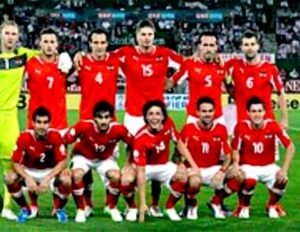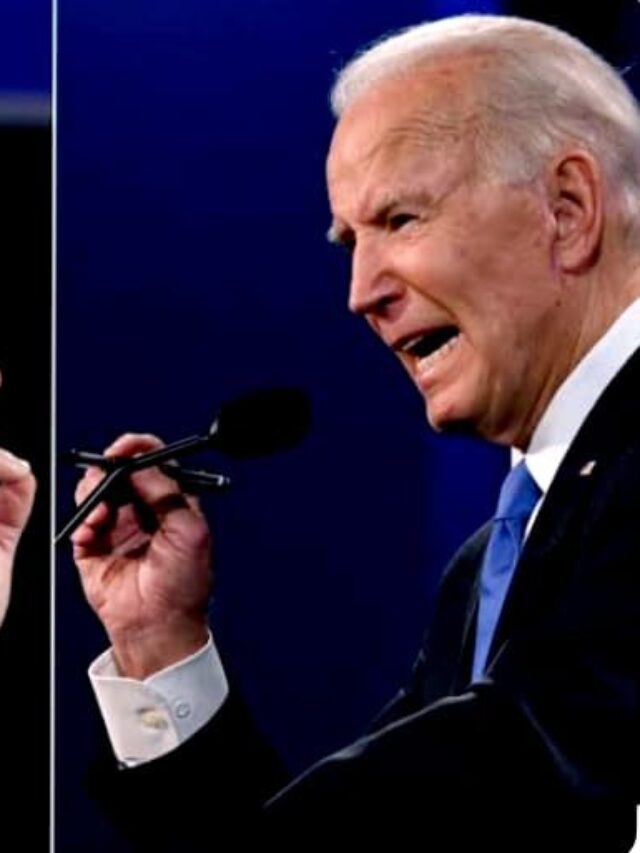Austria national football team is exciting combination of seasoned veterans and rising stars establishes Austria as a squad to watch in the coming years.
Fans may expect thrilling matches and major accomplishments as the Austria national football team progresses toward international prominence.
Austria is poised to make a name for itself on the international football stage thanks to its determination, skill, and strategic thinking
Introduction:-
Austria’s national football team squad has slowly gained worldwide recognition.
With a mix of experienced veterans and talented young players, the squad is primed to make an impact in forthcoming competitions.
This blog article will look at the present roster, spotlight some of the rising talents, and preview Austria’s upcoming key matches.
We’ll look at the team’s plans, significant players, and potential challenges as they prepare to compete in the UEFA European Champi
Chapter 1. The Evolution of Austrian Football team:-
1. . Historical Background:-
Football in Austria has a long history, stretching back to the early twentieth century.
The national team has had its ups and downs over the years, but its fortunes have recently improved.
Austria has produced some iconic players and notable moments throughout history, including remarkable runs in the 1930s World Cups and the 1970s European Championships.
2. Modern Developments of Austria national football team :-
In recent years, Austrian football has undergone significant changes, particularly with the development of youth academies and a focus on modern training techniques.
- These efforts have started to bear fruit, as evidenced by the emergence of a new generation of talented players who are making their mark both domestically and internationally.
Chapter 2. The Current Austria National Football Team Squad:-
1. . Goalkeepers:-
The goalkeeping department is an important aspect of every football squad, and Austria has a good balance of experience and youth in this position.
.Heinz Lindner (Age 33, Height 6′ 2″, Weight 174 pounds): Lindner, a seasoned veteran, provides valuable knowledge and leadership to the club
.Niklas Hedl (Age 23, Height 6′ 3″, Weight 174 pounds): Hedl, a talented young prospect, has demonstrated tremendous promise and is anticipated to be a significant player in the future
.Patrick Pentz (Age 27, Height 6′ 0″, Weight 174 lbs): Pentz’s consistent performances offer depth and reliability to the goalkeeping group.
2. Defenders:-
The defensive lineup in Austria national football team consists of a mix of strong and nimble players who can adjust to changing tactical demands
.Maximilian Wöber (Age 26, Height 6′ 2″, Weight 190 pounds): He is known for his physical presence and aerial abilities
.Gernot Trauner (Age 32, Height 6’0″, Weight 181 lbs): Trauner’s experience and tactical intelligence make him a key member of the defense
.Kevin Danso (Age 25, Height 6′ 3″, Weight 185 pounds): Danso is a dynamic defender who excels at both defending and passing the ball
.Stefan Posch (Age 27, Height 6′ 3″, Weight 181 lbs): Posch’s versatility allows him to play a variety of defensive positions
.Leopold Querfeld (Age 20, Height 6′ 3″, Weight 183 lbs): A rising star, Querfeld is one to watch in the future
.Philipp Lienhart (Age 27, Height 6′ 2″, Weight 183 pounds): Lienhart is a strong and dependable player who is critical to maintaining defensive steadiness
.Phillipp Mwene (Age 30, Height 5′ 7″, Weight 150 pounds): Mwene’s quickness and agility bring a new dimension to the defensive lineup
.Flavius Daniliuc (Age 23, Height 6′ 2″, Weight 170 pounds): Daniliuc’s youth and potential are critical to the team’s future goals.
3. Midfielders in Austria national football team :-
The midfield is the team’s engine room, and Austria excels here with a combination of inventiveness, strength, and tactical understanding.
Nicolas Seiwald (Age 23, Height 5′ 10″, Weight 172 lbs): Seiwald’s vision and passing abilities make him a valuable playmaker.
.Alexander Prass (Age 23, Height 5′ 11″, Weight 159 lbs): Recognized for his work ethic and tactical acumen
.Marcel Sabitzer (Age 30, Height 5′ 10″, Weight 168 lbs) is a leader on and off the pitch. Sabitzer combines experience and quality
.Florian Grillitsch (Age 28, Height 6′ 2″, Weight 170 lbs): Grillitsch’s physicality and ball-winning ability are crucial in midfield clashes
.Florian Kainz (Age 31, Height 5′ 9″, Weight 157 lbs): An experienced campaigner, Kainz brings depth and adaptability.
.Romano Schmid (Age 24, Height 5′ 6″, Weight 150 lbs): Schmid’s creativity and flair are valuable in breaking down defenses
.Christoph Baumgartner (Age 24, Height 5′ 11″, Weight 161 lbs) is a promising player recognized for his attacking ability and intensity
.Konrad Laimer (Age 27, Height 5′ 11″, Weight 159 lbs): His speed and ability to cover ground make him invaluable
.Matthias Seidl (Age 23, Height 5′ 9″, Weight 159 lbs) is a promising young midfielder with excellent technical abilities
.Patrick Wimmer (Age 23, Height 6′ 0″, Weight 170 pounds):Wimmer’s versatility allows him to contribute on both offense and defense
.Marco Grüll (Age 25, Height 6’0″, Weight 161 pounds): A reliable performer noted for his consistency.
4. Forwards in Austria national football team ;-
Austria’s attacking
)lsquad is critical for scoring goals and creating opportunities, as it includes both experienced strikers and emerging talent
.Marko Arnautovic (Age 35, Height 6′ 4″, Weight 183 pounds): Arnautovic is a talismanic figure, with tremendous experience and goal-scoring talent
.Michael Gregoritsch (Age 30, Height 6’4″, Weight 201 lbs): Gregoritsch’s physical presence and finishing ability are valuable weapons
.Andreas Weimann (Age 32, Height 5′ 10″, Weight 168 pounds): He is known for his work ethic and versatility as an attacker
.Maximilian Entrup (Age 26, Height 6′ 1″, Weight 163 lbs) is a promising forward who gives depth to the attacking options.
Chapter 3. Rising Stars of the Austria National Football Team:-
1. Emerging Talents to Watch:-
Austria’s national team is endowed with a number of young players that have the potential to become international stars.
Players such as Leopold Querfeld and Christoph Baumgartner have already demonstrated enormous promise.
These young stars offer new energy and dynamism to the team, ensuring Austria’s long-term competitiveness.
2. The Role of Youth Academies:-
Austria’s youth academies have played an important role in developing young talent.
Clubs such as Red Bull Salzburg have played an important role in developing players who go on to achieve at the national level.
These schools emphasize technical skills, tactical understanding, and physical development, laying a solid basis for future achievement.
<script async src=”https://pagead2.googlesyndication.com/pagead/js/adsbygoogle.js?client=ca-pub-6169120380565110“
crossorigin=”anonymous”></script>
Chapter 4. Key Players and Their Contributions:-
1. Veterans Leading the Charge in Austria national football team :-
Marko Arnautovic and Marcel Sabitzer are experienced players that give the team with leadership and stability.
Their experience in top European leagues and past international competitions proves essential in high-pressure situations.
These veterans also act as mentors for the younger players, advising them both on and off the pitch.
2. Midfield Maestros in Austria national football team ;-
The midfield is where games are frequently won and lost, and Austria national football team has a competitive lineup of midfielders.
Players such as Florian Grillitsch and Konrad Laimer are well-known for their abilities to manage the game, break up opposing attacks, and launch counterattacks.
Their presence in the midfield is critical to Austria’s tactical system.
3. Defensive Stalwart:-
Austria’s defense is built around defenders such as Gernot Trauner and Maximilian Wöber.
Their ability to read the game, make important interceptions, and give stability in the back is essential.
Austria’s defense, which consists of both veteran and young players, is well-prepared to face the challenges provided by elite international teams.

Chapter 5. Austria’s Strategy and Tactics:-
1. Tactical Flexibility:-
Austria’s national team is well-known for its tactical versatility, which allows it to adapt to various opponents and situations.
The team’s ability to vary between formations, such as the traditional 4-4-2 and the more dynamic 3-5-2, makes them unpredictable and difficult to beat.
This tactical versatility is a significant strength of the team.
2. High-Pressing Game:-
High-pressing is a defining feature of Austrian play.
The squad strives hard to recover the ball high up the pitch, putting pressure on the opposition and inducing mistakes.
This aggressive style needs a high level of athleticism and coordination, yet it may be extremely effective in disturbing the opponent’s rhythm.
3. Counter-Attacking Threat:-
Austria is also known for its counter-attacking prowess.
With fast and skillful players like Patrick Wimmer and Andreas Weimann, the team can quickly transition from defense to attack.
This ability to exploit spaces behind the opposition’s defense makes Austria a dangerous team on the break.
Chapter 6. Stadium Tours: Experiencing Austrian Football Up Close:-
1. Introduction to Ernst Happel Stadium:-
The Ernst Happel Stadium, located in Vienna, is not only Austria’s largest stadium, but also a historical landmark for Austrian football.
This stadium, named after the renowned Austrian football player and coach Ernst Happel, has a seating capacity of over 50,000 and has hosted many historic football events, including European Championships and World Cup qualifiers.
2. Guided Tours & Match Day Experience:-
A visit to the Ernst Happel Stadium provides more than simply an overview of the structure.
Guided tours offer an in-depth look at the stadium’s facilities, such as the players’ locker rooms, VIP lounges, and press areas.
On non-match days, visitors can take their time exploring the stadium, learning about its history and significance.
Attending a live match provides a more thrilling experience because spectators can feel the intensity and enthusiasm that vibrates through the stands, producing memories that will last a lifetime.
3. Connecting to Austria national football team Culture:-
A visit to the stadium is incomplete without understanding its cultural significance.
The stadium is a gathering place for local football supporters and a symbol of national pride.
Engaging with the local fanbase, taking part in pre-match festivities, and watching the enthusiastic support can help visitors gain a better understanding of Austrian football culture.
This link adds to the whole trip experience, making it unique and unforgettable.
-

Thanks to google for this image for the blog post named Austria National Football Team: Rising Stars and Upcoming Matches”
Chapter 7. Integrating Football and Travel: A Unique Experience:-
1. Travel for Major Football Events:-
Austria national football team activities, particularly during the UEFA European Championship, provide an unforgettable travel experience.
The excitement and energy surrounding these events make an ideal backdrop for visiting the country.
During football season, cities such as Vienna, Salzburg, and Innsbruck come alive with football fever, creating a joyous atmosphere that complements the historic charm.
2. City Guides For Football Fans:-
Vienna, the capital city, is a must-see destination for every football enthusiast.
Aside from the Ernst Happel Stadium, the city has several attractions, including historic buildings like Schönbrunn Palace, cultural hubs like the MuseumsQuartier, and dynamic neighborhoods like Naschmarkt.
Fans in Salzburg may combine their passion of football with a visit to Mozart’s birthplace and the gorgeous Salzburg Cathedral.
Innsbruck, known for its alpine activities, also has a vibrant football culture to complement its breathtaking mountain views and charming old town.
3. Engaging with Local Culture:-
Travelers can enrich their trip by learning about local football culture.
Visiting football taverns, taking part in street celebrations, and participating in local fan activities may all provide a true flavor of Austrian friendliness.
The native cuisine, music, and traditions, mixed with the camaraderie of football fans, provide for a unique and engaging experience that goes beyond normal tourism.
Chapter 8. Upcoming Matches and Challenges:-
UEFA European Championship 2024-25
The UEFA European Championship 2024-25 is an important competition for Austria.
The team is anticipated to perform admirably and has set lofty goals for itself.
Key matchups against top European nations will test Austria’s mettle and provide a platform for demonstrating their talent and tactical acumen.

conclusion:-
Aus Austria national football team Journey:-
The Austria national football team’s journey is one of perseverance, skill, and national pride.
Their performances on the international stage have inspired and excited fans both locally and abroad.
The team’s budding stars and seasoned players demonstrate Austria’s passion to the sport, making each match an unforgettable experience.
A unique travel experience:-
Austria provides guests with more than simply a football experience.
It provides an opportunity to see a lovely country with a rich cultural heritage, breathtaking landscapes, and a vibrant sports culture.
Whether attending a game at the Ernst Happel Stadium, visiting Vienna’s ancient neighborhoods, or interacting with local fans, the combination of football and travel offers a unique and gratifying experience.
Connecting Sport and Culture:-
The convergence of football and travel in Austria exemplifies the country’s unique capacity to bridge sports and culture.
It enables visitors to see firsthand the impact of football on local communities and recognize the sport’s role in defining national identity.
This connection enhances the trip experience, elevating it from a mere visit to an immersion into the heart of Austrian culture and football enthusiasm.
The Austria national football team is on the verge of a new era, combining seasoned veterans and budding stars to construct a strong side.
The combination of and and youth results in a dynamic and versatile team capable of contending at the top level.
Marko Arnautovic and Marcel Sabitzer provide leadership and expertise, while Christoph Baumgartner and Leopold Querfeld are emerging stars with a promising future.
Austria’s strategic style, which is distinguished by tactical flexibility, aggressive pressing, and efficient counter-attacking, makes them a formidable opponent for any team.
As they prepare for the UEFA European Championship 2024-25, the squad faces crucial tests that will not only assess their current ability but also lay the groundwork for future success.
The continued growth of youth academies in Austria maintains a consistent flow of talent, which is critical for long-term success.
With the correct combination of strategy, talent, and drive, the Austrian national football team has the potential to make a huge impact on the world stage.
Fans and supporters can expect an interesting journey as Austria strives to climb and excel in upcoming competitions.
Frequently Asked Questions.
Q1: Who are the important players for the Austrian national football team?
A1: Veteran players such as Marko Arnautovic and Marcel Sabitzer contribute vital expertise and leadership to the Austria national football team. Emerging talents like Christoph Baumgartner and Leopold Querfeld are also important, bringing new energy and potential to the club.
Q2: What is Austria’s strategy for the UEFA European Championship 2024-25?
A2: Austria’s plan for the UEFA European Championship 2024-25 is based on tactical flexibility, aggressive pressing, and effective counterattacking. The team’s goal is to combine experienced veterans with growing young talent to form a dynamic and competitive group capable of challenging top opponents.
Q3: How does Austria prepare its future football talent?
A3: Austria is spending extensively in youth academies to develop the next generation of football talent. These academies serve an important role in training young players, maintaining a consistent supply of new talent to the national team, and ensuring the squad’s long-term viability.
Q4: What are the most recent successes of the Austria national football team?
A4: Recently, the Austria national football team has made great development, achieving impressive results in international competition. Their emphasis on tactical development and the integration of youthful talent has been noticed, making them a squad to watch at the 2019 UEFA European Championship.
Q5: Who coaches the Austria national football team, and what is their coaching philosophy?
A5: Austria’s national football team is coached by [insert current coach’s name]. Their coaching style focuses on developing a balanced team that values discipline, teamwork, and tactical versatility. To achieve success, the coach plans to use the strengths of both seasoned and young players.
Q6: How has Austria’s national football team historically done in international competitions?
A6: Historically, the Austria national football team has enjoyed varying degrees of success in international competitions. While they have encountered problems, their performance has improved in recent years, with significant progress in qualifications and competitive matches, reflecting their expanding international power.
Q7: What can fans expect from the Austria national football team in their future games?
A7: Fans may expect interesting and competitive encounters from the Austria national football team during the next UEFA European Championship 2024-25. With a mix of seasoned leaders and potential young players, the club is ready to deliver exciting performances and achieve big goals.
Q8: How can I keep up with the most recent updates and news regarding the Austria national football team?
A8: You can stay up to speed on the newest Austria national football team news and updates via a variety of venues, including their official website, social media profiles, sports news websites, and fan pages. Staying connected through these platforms will keep you up to date on team news, match scheduling, and player performances.
Q9: What impact do developing talents have on the Austrian national football team?
A9: Emerging talents have a huge impact on the Austrian national football team by injecting new energy, innovation, and promise into the squad. Their integration contributes to the creation of a dynamic and adaptable team, ensuring a mix of experience and youthful exuberance, which is critical for long-term success.
Q10: What are the Austrian national football team’s future goals?
A10: The Austria national football team’s ambitions for the future include consistent success in international events, establishing a strong pipeline of young talent, and reaching key milestones in contests such as the UEFA European Championship. They want to establish themselves as a strong force in world football.






*The eyes of those who always stay in light are relatively weak, so learn to live in darkness also.*